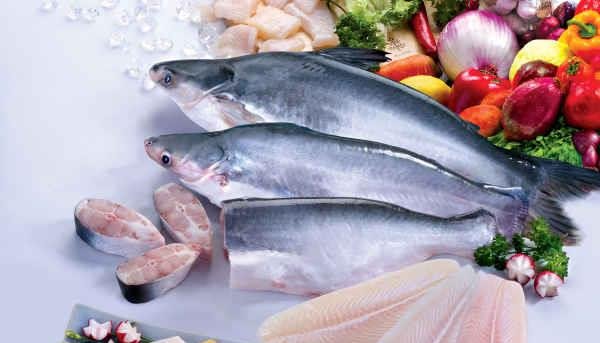By Mike Urch, Contributing Editor
 It’s happening all over again. Following the hatchet job on Vietnamese pangasius on German television instigated by WWF in March 2011, the Spanish television channel Cuatro recently broadcast what has been described as fake news about the farming of pangasius in the Mekong River.
It’s happening all over again. Following the hatchet job on Vietnamese pangasius on German television instigated by WWF in March 2011, the Spanish television channel Cuatro recently broadcast what has been described as fake news about the farming of pangasius in the Mekong River.
According to the Curator report, pangasius are being raised in unclean cages and fed with non-industrial feed such as dead fish and other food waste. The report went on to charge that this was the reason for the low prices of Vietnamese pangasius. Five days later, the station continued to broadcast incorrect information about the breeding of pangasius in Vietnam.
Unfortunately, the Curator report obviously hadn’t been sufficiently fact-checked, since most pangasius are raised in ponds and fed specially manufactured diets. Even more unfortunately, the faulty reporting led to the giant French food retail chain, Carrefour, stopping pangasius sales in its supermarkets in Belgium, France and Spain. Supermarkets in Italy have since followed suit and stopped selling pangasius.
It is hard to get to the bottom of this knee-jerk reaction, only to say that the power of television is paramount and consumers always appear to believe what they see on their screens. (Sadly, it seems there is no readily available official information which would give them an accurate overview of the situation.)
Pangasius is one of the most carefully controlled farmed fish species in the world and farming methods are certified by independent organizations such as the Aquaculture Stewardship Council (ASC), the Global Aquaculture Alliance (GAA) and GlobalGAP.
This point was affirmed by the Vietnam Association of Seafood Exporters and Producers (VASEP). Talking to the Saigon Times, VASEP General Secretary Truong Dinh Hoe, said: “Vietnam still offers Europe the products that meet all the conditions of this market such as ASC (the world’s leading certification and labeling program for responsibly farmed seafood) and GlobalGAP (Good Agricultural Practices).”
The GAA, which is behind the Best Aquaculture Practices (BAP) certification, has verified Vietnamese tra fish (the Vietnamese term for pangasius) are produced responsibly according to stringent food safety standards.
“So consumers can totally rest assured,” said Vo Thi Thu Huong, deputy general secretary of the Vietnam Pangasius Association (VN Pangasius).
Commenting on the retailers’ decisions to stop selling pangasius in European supermarkets, the Aquaculture Stewardship Council said it was “sorry to see that a few retailers have decided to halt sales of pangasius. When farmed responsibly, and according to robust environmental and social criteria as defined in the ASC Pangasius Standard, buyers and consumers can have confidence in their selection of pangasius for their families.”
On its own website, Carrefour describes the ASC as an organization which “confirms that the environment has not been harmed and that the animal’s well-being has been checked, together with working conditions.” So why doesn’t it ensure that the pangasius it buys come from farms certified by the ASC?
Carrefour does buy from farms certified by GlobalGAP, which began as an initiative by British and continental European retailers to combat consumers’ concerns “regarding product safety, environmental impact and the health, safety and welfare of workers and animals.” The pack labels of GlobalGAP-certified products state: “The certification of GlobalGAP gives Carrefour the warranty of the quality of their pangasius.”
Hoe believes the “libelous behaviour” serves none other than the purpose of trade protection and unfair competition. He said that after the airing of video footage containing false information about the domestic tra fish industry, a group of people made use of this to broadcast propaganda against Vietnam’s tra fish.
“A certain group of people seeks to take advantage of this environmental incident to inflate the story and assist the sale of domestic fish, instead of imports from Vietnam,” he said.
Hoe appeared quite sanguine about the effect of the television program on future European sales. He told the Saigon Times that the export of pangasius to Europe may be affected but not seriously.
Whether this is correct remains to be seen. But using history as an example, it took years for the Vietnamese pangasius industry to recover from the effects of the German television program in 2011.
http://www.seafoodsource.com/commentary/pangasius-hit-hard-by-fake-news
Leave a Reply
Be the First to Comment!